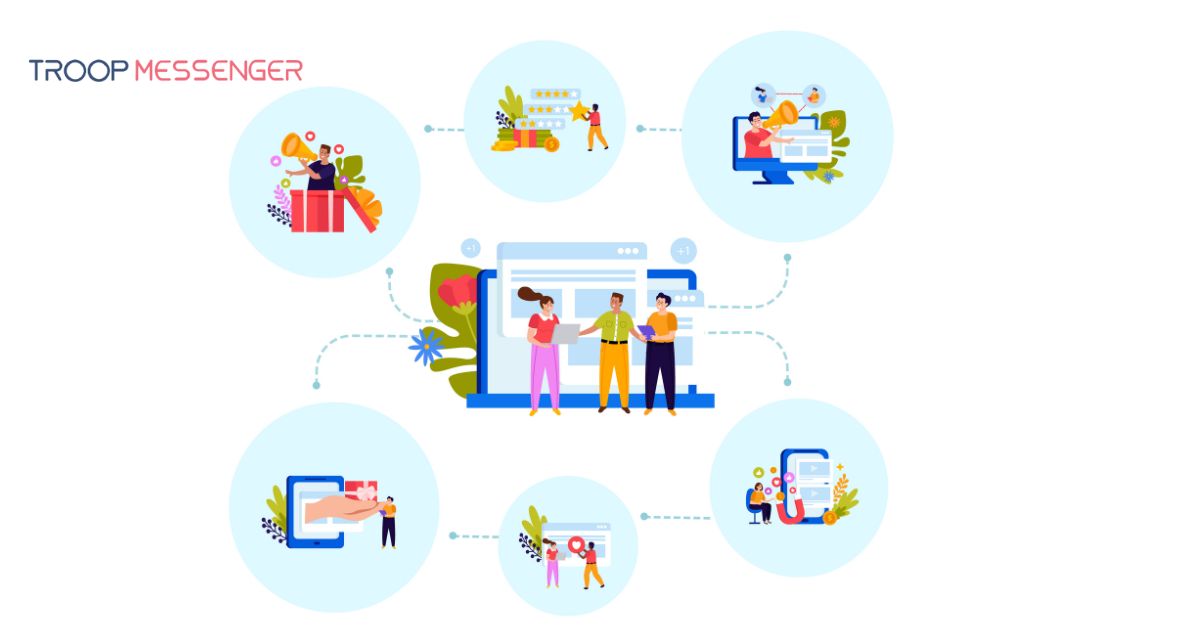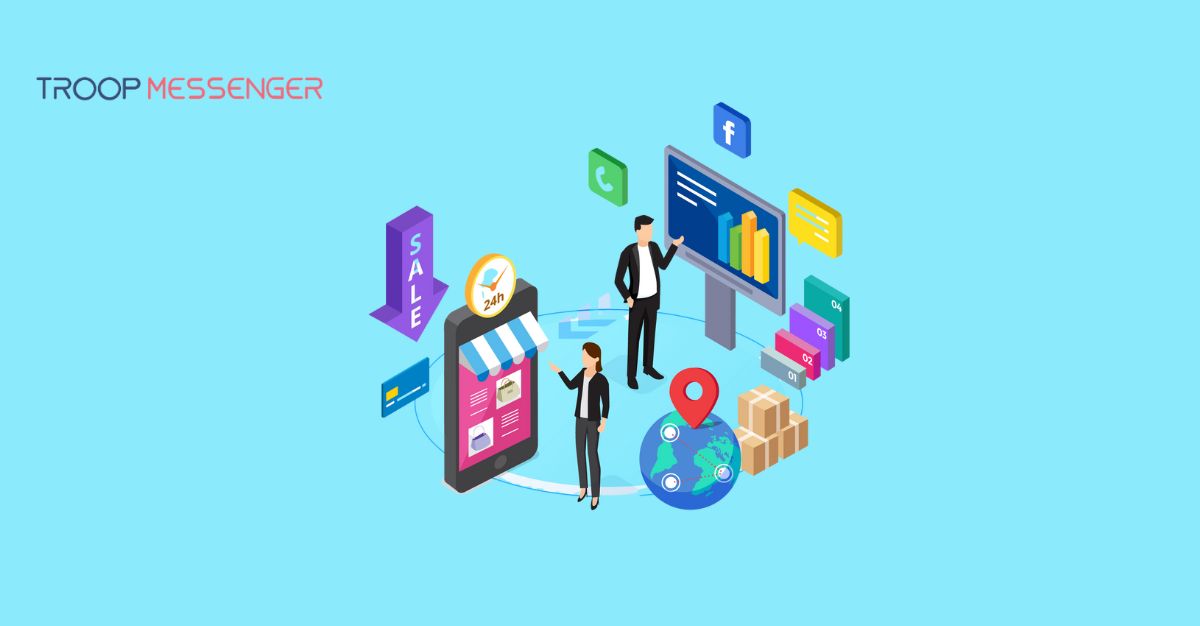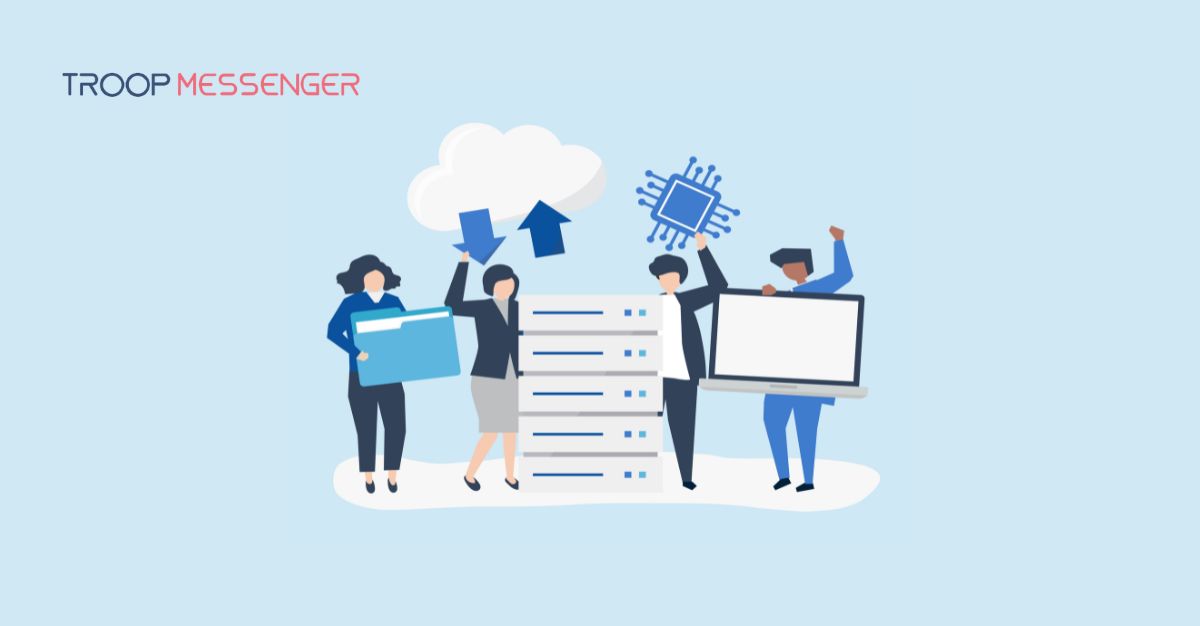Connect with us

Why development teams need smarter collaboration tools
Software development teams work in a highly competitive environment with tight deadlines and constantly changing requirements. To enable them to work together well, speed and flexibility of processes must be ensured. One of the success factors is effective communication and collaboration.
Experts express the opinion that traditional tools for communication and project management, such as emails and simple task trackers, often fail to keep up with the dynamics of processes. Delays, information chaos and productivity losses slow down team members and the overall business.
To meet the growing challenges, teams need smarter tools for software development teams. They not only automate routine tasks, but also optimize collaboration between project members, providing transparency, instant data synchronisation and real-time decision support. Such solutions accelerate development and enable the creation of better software products.
The growing complexity of software development
The complexity of software development is related not only to the growing requirements to product quality and functionality, but also to changes in the organisation of team work. Modern projects require the participation of many specialists - developers, designers, testers, analysts, managers - who may be located in different time zones and work remotely. This creates additional challenges: it is more difficult to maintain synchronisation between participants, to promptly resolve emerging issues, and to ensure a unified vision of the project.
Larger teams & remote work
With the trend towards globalisation and distributed teams, the workplace is no longer one-size-fits-all. Therefore, factors such as different cultural environments and time zones, language barriers, differences in approaches and working styles, and mismatched schedules can hinder the development process. Traditional regular meetings and long chains of communication are irrelevant and ineffective in this case.
Multiple tools & workflows
Modern software development is rarely limited to a single collaboration platform. Applications must run on different operating systems, support web and mobile interfaces, cloud based, and be compatible with different devices. This means that professionals have to simultaneously consider multiple environments, technology stacks, and infrastructure requirements. Managing this diversity requires considerable effort and careful coordination, and any inconsistencies can lead to deployment problems.

In addition, each platform is different: mobile apps are dependent on the app shops and limitations of iOS and Android, web apps must adapt to different browsers, and cloud services require consideration of scalability and resilience. Teams have to juggle different professional apps to write code, test, version control and auto-deploy, which adds complexity and risks incompatibility. New team collaboration tools can help to solve these problems
Need for seamless communication
Delays in information transfer and miscommunication can lead to costly errors. At a minimum, it has the effect of slowing project progress. The problem can escalate to the point where late discussions of technical details, missed updates or unclear requirements lead to a situation where part of the team is working with outdated data, which can lead to rework, missed deadlines and increased costs.
Example. A programmer implements functionality based on a misinterpreted requirement, and fixing the error late in development will require significant resources. Errors in integration due to uncoordinated actions of different specialists may lead to product failures, resulting in user dissatisfaction and financial losses.
To mitigate the risk of delays and miscommunication, smarter collaboration tools are needed. As the experts at software design and development company OverCode say, tools offer tremendous features:
- Ensuring transparency in workflows;
- Automatic time zone accounting;
- Centralised storage of all project information;
- Reducing coordination time between participants;
- Timely correction of errors;
- Reduction of task management costs.
Real-Time Communication & Integration
To increase developer productivity, we need to start by organising real-time communication and integration. Instant messaging in Slack, Microsoft Teams and other online collaboration tools can help. For video conferencing, spontaneous meeting, audio video retrospective, Zoom, Google Meet, Discord are most suitable.
In a business environment where the pressure for speed and accuracy is paramount due to ever-increasing volumes of customers needing query resolutions, real-time translation messaging tools become not just appealing but crucial. Even if you only use them for less critical communications.
It is also important to provide access to centralised task boards (Trello, Jira, Asana) and documentation (Notion, Confluence), so that each participant can better understand the status of the project and task. And, of course, efficient code handling is impossible without tight integration with version control systems such as Git, GitHub, GitLab, and Bitbucket. Intelligent tools allow you to:
- automate code reviews;
- track code changes in real time;
- facilitate working with repositories through user-friendly graphical interfaces.
Efficient Project & Task Management
Agile is a project management philosophy whose key features are agile development and the ability to adapt to changes at any stage of the project. Agile is seen as an alternative to Waterfall (the classic cascade model), in which development follows a strict plan. There is a useful glossary where you can read about specific terms that apply to the concept. Agile has a popular framework called Scrum, with which teamwork is broken down into short cycles, aka sprints, lasting 1-4 weeks.

Agile and Scrum have become standards in software development management, and many collaboration tools for remote teams are tailored to these methodologies. Here are examples of the most popular and secure services:
- Jira is a powerful project management system designed for Scrum and Kanban teams. It allows you to create a backlog, manage sprints, track tasks and their statuses. Due to the flexibility of customisation, Jira is suitable for both small startups and large companies.
- Trello is a simpler and more visual task management board built on Kanban methodology. It is easy to use for running small projects or supporting tasks in large teams.
- ClickUp - a versatile tool that combines elements of Agile methodologies, allowing you to manage tasks, work with a backlog, schedule sprints and automate repetitive processes.
Code Collaboration & Version Control
Developers used to work exclusively with on-premises environments such as VS Code, IntelliJ IDEA and others, but with the rise of remote working, cloud-based IDEs have become popular, allowing you to:
- edit code simultaneously with colleagues, like in Google Docs;
- not worry about installing dependencies, as the environment is already set up;
- work from any device without being tied to a powerful computer.
Examples of popular cloud IDEs include GitHub Codespaces, JetBrains Code With Me, Replit, Code Sandbox. This collaboration software is especially useful for code-review, pair programming, and training new developers.
Improved Documentation & Knowledge Sharing
It is important for business in software development to provide centralised data storage for quality file sharing and document sharing. In-house tools such as Confluence and Notion help organise documentation, coding standards and instructions, making them accessible to all.
Confluence is Atlassian's powerful enterprise wiki for documentation storage, collaboration, and knowledge management across teams. Benefits of the wiki:
- deep integration with Jira and other Atlassian tools;
- flexible page structure and permissions;
- great for large teams and complex projects.
Notion is a versatile platform for taking notes, knowledge bases and task management. Here is a good example of how a developer can use Notion to organise their work. Notion is simple and intuitive, supports flexible templates and databases, and is well suited for individual use and small creative teams.
How smarter collaboration tools improve productivity
A team will be able to fully focus on creating a high quality product if distractions and routine operations are minimised. Modern encrypted collaboration tools use AI-based search to quickly find information, past decisions and relevant discussions. This saves time searching for answers, improves onboarding of new employees through knowledge sharing, and increases team efficiency.

We need tools that help reduce context switching by combining tasks, code, and documentation into a single ecosystem. Artificial intelligence-based automation of repetitive processes reduces developer burden by speeding up testing, bug hunting and deployment. All of this improves developer experience (DX), allowing them to spend less time on administration and more time on key technical tasks.
Choosing the right collaboration tools for your development team
When considering modern tools for software development teams, it is no longer enough to pay attention only to convenient team chat and time tracking software. It is necessary to provide a holistic ecosystem for fast, complete and reliable contact of employees across all departments and areas.
Factors to consider
First of all, you need to prioritise what the main challenges will be for team collaboration tools. Clearly, the software must be compatible with existing workflows, secure and compliant with regulatory requirements. And scalability can also be considered in the long run if the team grows.
Breaking it down in more detail, then:
- The tool should seamlessly integrate with the current technology stack, accommodate development methodologies and processes. This minimises transition friction and reduces training time.
- For scalability potential, it is important to evaluate under what conditions new extended team members can be added, how performance will change as the workload increases, and whether there is flexibility in access rights and team management.
- If the team works with sensitive and confidential information, data in storage and transmission should be encrypted, multi-factor authentication, activity logging and change auditing should be implemented, and compliance with industry standards, e.g. GDPR, ISO 27001, SOC 2.
Top tools for development teams
Let's look specifically at what tools help product development teams? When choosing collaboration platforms, it is worth paying attention to proven solutions:
- Communication: Slack, Microsoft Teams - convenient chats and video calls to discuss work processes.
- Project Management: Jira, Asana, Monday.com - flexible tools for task and project management.
- Code Collaboration: GitHub, GitLab, Bitbucket - powerful platforms for working with code, collaborative editing and CI/CD.
- Documentation: Notion, Confluence, Coda - convenient tools for technical and organisational documentation.
If you need task tracking tools for small development teams, take a look at Trello with a free tariff and a very user-friendly interface, Asana with multiple project customisations to suit your requirements, Monday.com - an easy-to-use tool with the ability to automate workflows. You may also be interested in Linear - a minimalistic and fast task tracker created especially for developers, and Taiga - a convenient open-source solution for Agile teams with support for Scrum and Kanban. And for large companies, Jira, which supports complex development processes and integration with DevOps, is the best choice
The future of development teams collaboration tools
Advances in technology are opening up new opportunities for collaboration:
- AI tools for software development teams that can suggest solutions, automate tasks and even help debug code;
- virtual reality and Metaverse Collaboration, i.e. the prospect of using VR to create immersive workspaces where teams can interact in a 3D environment;
- more integrated and code-free/low-code solutions - simplifying development and automating processes without the need for deep technical expertise.
Smart collaboration tools enable development teams to work faster, more efficiently and with fewer obstacles. Start optimising your team's workflow today by implementing the right collaboration tools








